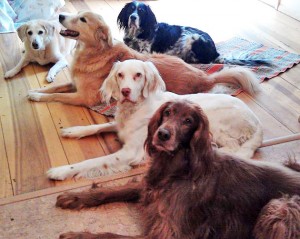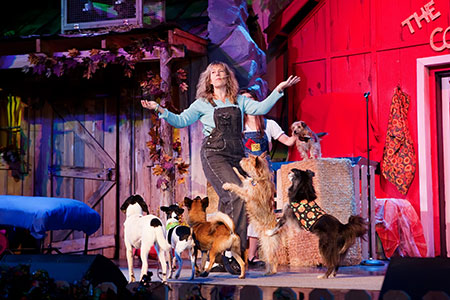Better Living Through Chemistry: Why You Shouldn’t Rule Out Meds
There is no doubt that there are many people benefiting from behavior modification medication. Lives have been saved. People are now leading productive lives when they were previously devoid of hope. Sadly, there are also probably nearly as many people misusing said meds. That is unfortunate but that doesn’t take away from the successes. Medication can get a bad rap. It’s overused but it’s equally underused. For as many people who are misusing it, I would venture to say that there are nearly an equal number who could benefit from it in their life.
Dogs are no different in this area. They can benefit as well. I can’t count how many times I run into resistance with some pet parents whose dogs are so stressed, they are not truly functioning. We expect so much of our dogs with what they “should” deal with yet we don’t see their pleas for help. If everyone had the ability to effectively communicate with their dogs, I have no doubt that the need for behavioral medication would drastically decrease. But the two way communication is lacking too much at this time to close that gap from education alone. Medication can be a real savior.
This is not to say that medication fixes everything. Not at all. The works still needs to be done. That’s where people like me come in. We teach the pet parents to read their dogs better, provide them safety and help them overcome or learn how to handle their fears and function better in their world. The medication, however, makes that path far easier in many cases. And in some instances, can mean the difference between retaining a loving home and losing it because of issues that are too hard to overcome.
My biggest frustration with this issue is when someone says that they want to try medication as a last resort. It shouldn’t be a last resort. If your dog has a physical ailment and needed medication for that ailment, would you withhold it to see if he could overcome it naturally? Of course not! Not if you are a responsible pet parent, that is! You wouldn’t give that a second thought, yet so many people are willing to let their dog suffer mental anguish when there is relief so easily accessed.
On the other side of this coin, just as in humans, are the pet parents who want everything fixed with a pill, without the modification part? There are no magic wands. Both have their roles to play. In most cases, medication is meant to be used to pave the way to better mental health. It’s not meant as a permanent solution. However, there are exceptions to this. Just as with people, there are dogs who simply have some crossed wires and are missing some vital chemicals in their brain. The medications supply those missing links and all is much better with their world because of them. These are the dogs needing seen by veterinary behaviorists who can give them the best of both worlds. My job is to determine which situation I am dealing with. In my own experience thus far, the issues have been environmental and adjustable.
The difference that medication can make in lives should be respected, not dismissed. There is a place for it. Balance is important. Natural remedies are crucial to many behavior modification plans but the use of one does not preclude the use of the other. I recommend both in conjunction with one another. I urge you to consider medication if your dog’s situation calls for it. It’s not a cop-out. It’s you respecting that your dog needs help. Feel free to comment about your own experiences with this subject in the spaces below. No judgments, only admiration for being open minded.
Posted in: Projects
Leave a Comment (4) →



 Familial bonding is another often overlooked facet of this scenario. For example, most households have some sort of regular weekday work or school schedule that prevents a lot of bonding and togetherness during the workweek, whether that be weekdays or just several days strung together where the canines in the family get less interaction than they need for emotional stability. Consider then that the dogs in the home may sleep separately from the humans and you have very little togetherness going on.
Familial bonding is another often overlooked facet of this scenario. For example, most households have some sort of regular weekday work or school schedule that prevents a lot of bonding and togetherness during the workweek, whether that be weekdays or just several days strung together where the canines in the family get less interaction than they need for emotional stability. Consider then that the dogs in the home may sleep separately from the humans and you have very little togetherness going on.

